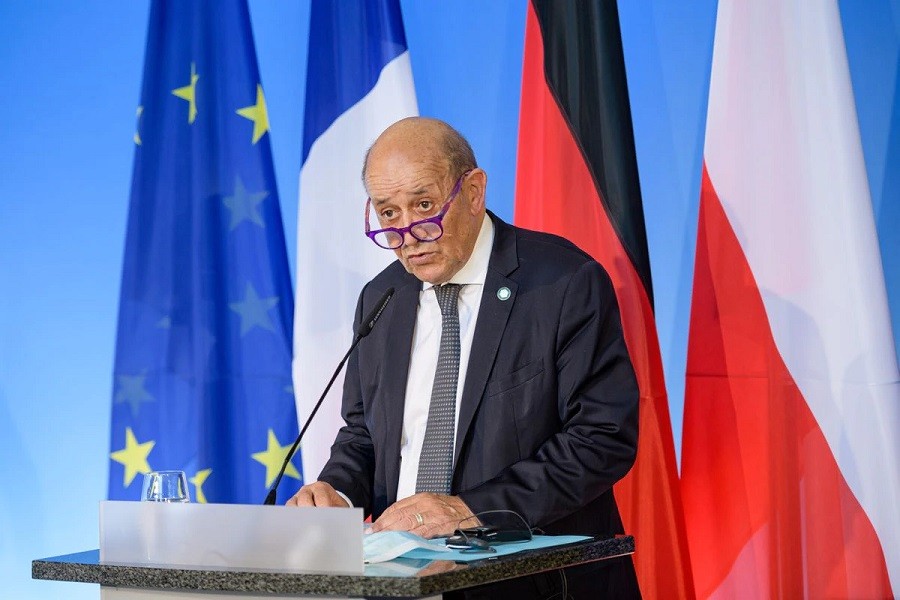France plunged into an unprecedented diplomatic crisis with the United States and Australia on Friday after it recalled its ambassadors from both countries over a trilateral security deal which sank a French-designed submarine contract with Canberra, Reuters reports.
The rare decision taken by French President Emmanuel Macron was made due to the "exceptional gravity" of the matter, Foreign Minister Jean-Yves Le Drian said in a statement.
On Thursday, Australia said it would scrap a $40 billion deal signed in 2016 for France's Naval Group to build a fleet of conventional submarines and would instead build at least eight nuclear-powered submarines with US and British technology after striking a trilateral security partnership. France called it a stab in the back.
A diplomatic source in France said it was the first time Paris had recalled its own ambassadors in this way.
Australia said on Saturday morning it regretted the recall, and that it valued the relationship with France and would keep engaging with Paris on other issues.
"Australia understands France's deep disappointment with our decision, which was taken in accordance with our clear and communicated national security interests," a spokesperson for Foreign Affairs Minister Marise Payne said in a statement.
US State Department spokesperson Ned Price said that France was a 'vital ally' and that the United States would be engaged in coming days to resolve the differences.
The French foreign ministry statement made no mention of Britain, but the diplomatic source said France considered Britain had joined the deal in an opportunistic manner.
"We don't need to hold consultations with our (British) ambassador to know what to make of it or to draw any conclusions," the source added.
Le Drian said the deal was unacceptable.
"The cancellation (of the project) ... and the announcement of a new partnership with the United States meant to launch studies on a possible future cooperation on nuclear-powered submarines, constitute unacceptable behavior between allies and partners," he said in a statement.
He added that the consequences "directly affect the vision we have of our alliances, of our partnerships and of the importance of the Indo-Pacific for Europe."
LOW POINT
The row marks the lowest point in relations between Australia and France since 1995, when Canberra protested France's decision to resume nuclear testing in the South Pacific and recalled its ambassador for consultations.
Australian Prime Minister Scott Morrison on Friday rejected French criticism that it had not been warned about the new deal, and said he had raised the possibility in talks with the French president that Australia might scrap the Naval Group deal.
Morrison insisted he had told Macron in June that Australia had revised its thinking.
"I made it very clear, we had a lengthy dinner there in Paris, about our very significant concerns about the capabilities of conventional submarines to deal with the new strategic environment we're faced with," he told 5aa Radio.
"I made it very clear that this was a matter that Australia would need to make a decision on in our national interest."
The strain in multilateral ties come as the United States and its allies seek additional support in Asia and the Pacific given concern about the rising influence of a more assertive China.
France is about to take over the presidency of the European Union, which on Thursday released its strategy for the Indo-Pacific, pledging to seek a trade deal with Taiwan and to deploy more ships to keep sea routes open.
US Secretary of State Antony Blinken tried on Thursday to calm the French outcry, calling France a vital partner in the region.
Pierre Morcos, a visiting fellow at Washington's Center for Strategic and International Studies, called France's move "historic."
"Reassuring words such as those heard yesterday from Secretary Blinken are not enough for Paris - especially after French authorities learned that this agreement was months in the making," he said.


